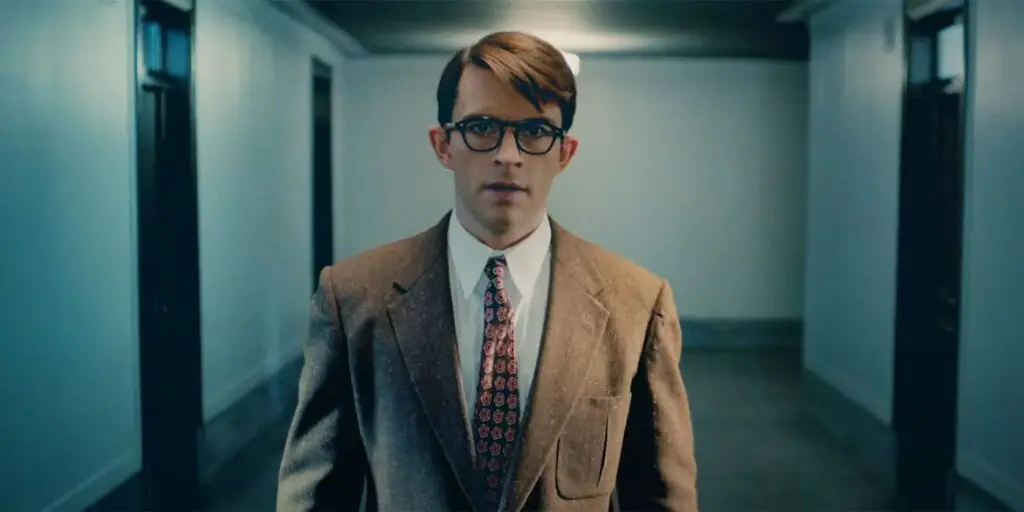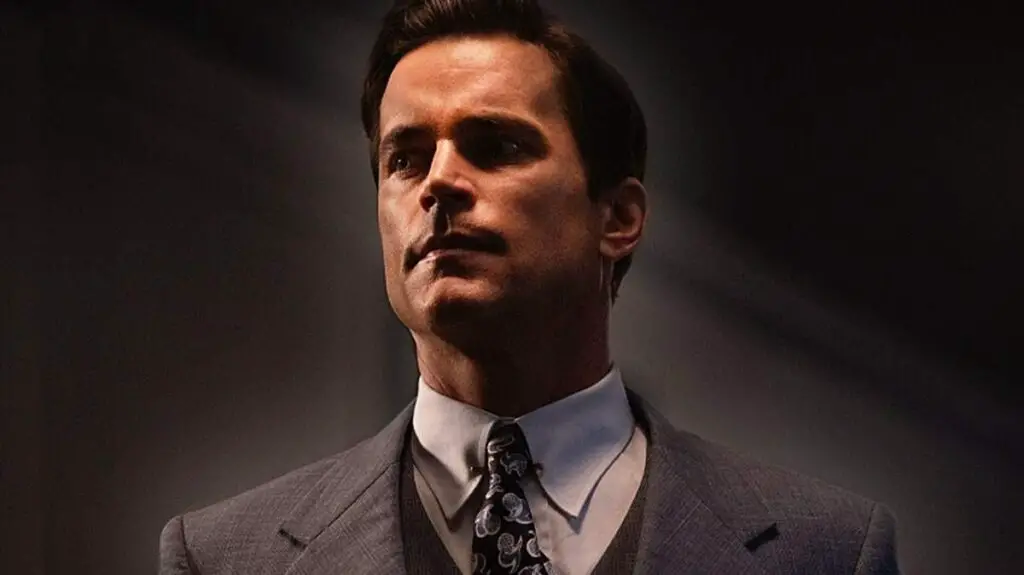Episode 4 of “Fellow Travelers,” a romantic drama series, intensifies as the political landscape becomes more strained, and relationships deepen amidst adversity. This episode primarily focuses on Hawk, who confronts a daunting challenge as he is summoned for an interrogation by the authorities. The narrative unfolds in the 1950s, where Hawk discovers a blue envelope in his office, a grim harbinger signaling a summons for questioning regarding his sexual orientation. This scene underpins the societal and governmental scrutiny of the era, particularly towards individuals suspected of homosexuality. The envelope symbolizes the era’s oppressive atmosphere, marking those suspected of deviance, primarily based on their sexual identity.
Hawk’s ordeal intensifies as he faces interrogation by Fred Traband, an agent notorious for his grueling questioning methods. This segment of the episode is particularly poignant, showcasing the extreme measures taken against those labeled as deviants, with some individuals tragically succumbing to the pressure. Hawk’s interrogation includes invasive questions and an assessment of his physical demeanor to ascertain his sexuality. Despite the oppressive environment, Hawk successfully navigates the interrogation, asserting his heterosexuality. This scenario is a testament to Hawk’s resilience and the harsh realities faced by many during this period.
The Evolving Dynamics of McCarthy, Cohn, and the Political Sphere

Parallel to Hawk’s personal struggles, the episode also explores the shifting dynamics between Senator Joseph McCarthy and his lawyer, Roy Cohn. Their relationship undergoes a transformation as they begin to diverge in their views. Previously, McCarthy faced allegations of homosexuality, while Cohn’s romantic interest in David Schine, a fellow associate, was utilized to evade military service. The episode delves into the complexities of their relationships and the manipulative undertones that drive their actions.
David Schine’s character is particularly illustrative of the era’s political machinations. He leverages his relationship with Cohn to gain privileges within the army, highlighting the intersection of personal relationships and political maneuvering. However, this situation is perceived suspiciously by others, including McCarthy, who fears the implications of a potential investigation into Cohn and Schine’s relationship and its impact on his own reputation.
A pivotal moment occurs during a meeting between McCarthy, Cohn, and army lawyers. The meeting, intended to discuss McCarthy’s case against the army, results in a fallout between McCarthy and Cohn. The tension culminates in McCarthy’s decision to fire Cohn, a move influenced by his secretary and soon-to-be wife, Jean. This decision sets off a chain of events, with Cohn receiving an envelope containing evidence of McCarthy’s homosexual acts, thereby shifting the balance of power in Cohn’s favor.
The Personal and Political: Hawk and Tim’s Journey in 1986
The episode also juxtaposes the past with the present, particularly focusing on the timeline in 1986. Hawk decides to stay with his former lover, Tim, in San Francisco, further highlighting the contrasts in their relationship dynamics over the years. This period is marked by Hawk’s reluctance to be publicly associated with Tim, fearing the exposure of his identity. Their disagreements and the ensuing tension reflect the ongoing challenges in their relationship.
Additionally, the episode touches on the enduring relationship between Marcus and his partner, Frankie, presenting a stark contrast to the tumultuous bond between Hawk and Tim. The episode concludes with a cliffhanger, as Tim experiences a seizure, adding another layer of complexity to Hawk’s emotional journey and his relationship with Tim.
In summary, Episode 4 of “Fellow Travelers” presents a multifaceted narrative, intertwining personal struggles with the broader political landscape of the 1950s and 1980s. The episode masterfully depicts the challenges of identity, love, and conviction against a backdrop of political upheaval and societal norms, leaving viewers eagerly anticipating the next developments in this compelling series.


